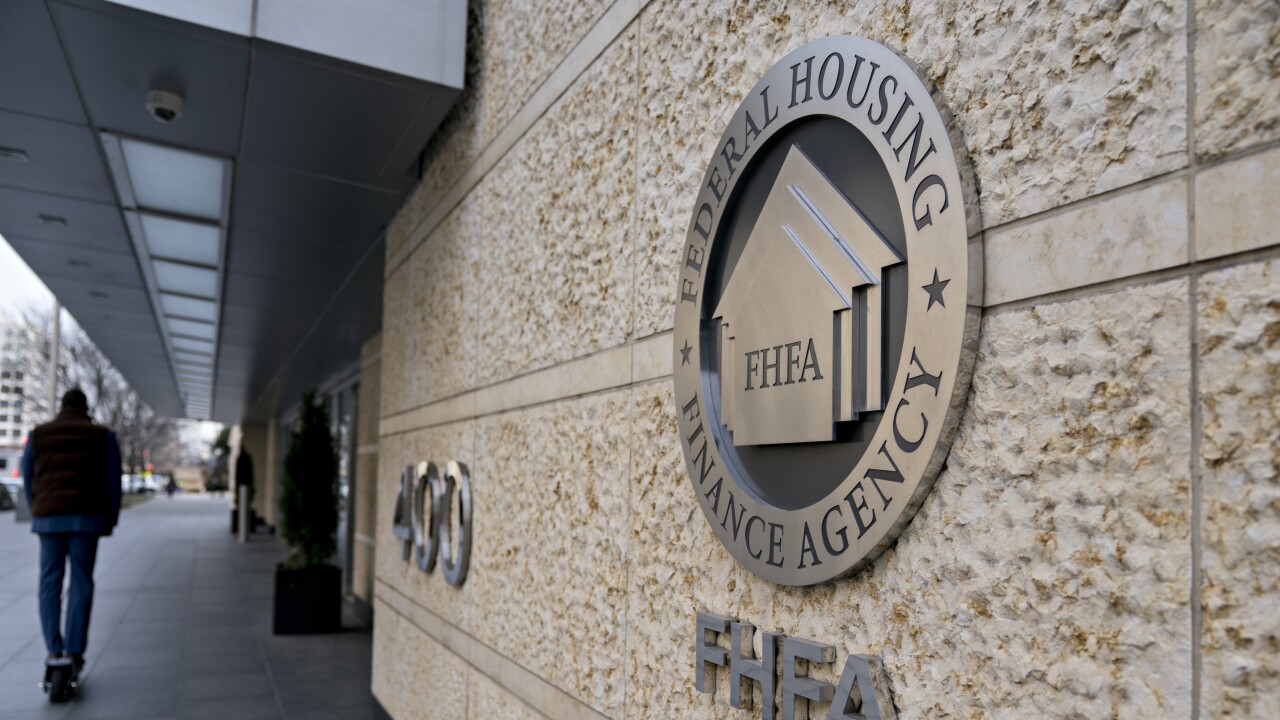Regulation and compliance
Regulation and compliance
-
Chris Dodd and Barney Frank said the legislation — nearing its 10th anniversary — put banks in position to be a stabilizing force during the coronavirus crisis.
June 30 -
The company said it had cut 20 positions and found a way to shed 35,000 square feet of office space by the end of 2020.
June 29 -
The Supreme Court threw out a key statutory provision concerning the agency’s leadership structure, but the presidential election and possible legislative reforms could bring about more changes to the embattled bureau.
June 29 -
In a split 5-4 decision, the justices gave presidents new power to remove the agency's head at will. The ruling could have far-reaching implications for other regulators with single directors.
June 29 -
A new CFPB rule will expedite the forbearance and loss-mitigation process for consumers suffering financial hardship from the pandemic.
June 23 -
The agencies said late Friday that they will provide information on small businesses that received $150,000 or more from the Paycheck Protection Program.
June 19 -
Activity in the Paycheck Protection Program has waned, but some argue that many small businesses, especially those owned by minorities, will miss out if the June 30 application deadline isn't extended.
June 19 -
A lawsuit filed Tuesday argues that the bureau's establishment of the panel looking into regulatory changes violated the Federal Advisory Committee Act.
June 16 -
As they prepare to exit government conservatorship, Fannie Mae and Freddie Mac have enlisted the investment banks to help them boost capital and evaluate market opportunities.
June 15 -
Evidence suggests some minority-owned businesses can’t access loans, and the Trump administration is under pressure to report borrower demographics. The issue is gaining attention against the backdrop of protests over the George Floyd killing.
June 14 -
A budget item establishing a new agency to protect consumers from predatory lenders has been put on hold as state officials deal with the coronavirus response and other priorities. But it could be revived in legislative talks later this summer.
June 11 -
Unlike in previous years, the results from two different evaluations will be released simultaneously and will include an assessment of bank capital under coronavirus-related scenarios.
June 9 -
The FHFA’s proposal is intended to strengthen Fannie Mae and Freddie Mac, but many experts warn that it could boost guarantee fees for lenders that they say may be passed on to borrowers.
June 8 -
One criticism of the CARES Act is that it provides relief only to borrowers with government-backed loans. Bills in New York and California would cover the remaining 30% of homeowners.
June 4 -
The new FHFA rule sets a percentage-based threshold to measure compliance, rather than Home Mortgage Disclosure Act data.
June 3 -
The FHFA looks to shed light on the amount of funds Fannie and Freddie will need to hold for their risk-sharing deals.
June 3 -
The firm also predicts that the coronavirus pandemic will delay the GSEs' release from government control.
June 3 -
The changes being sought would benefit both small businesses and banks, which would avoid the cost of servicing many low-yielding loans.
June 2 -
Periods of significant loan defaults are tough on banks and force unpleasant choices. Here are steps to evaluate collateral in such uncertain times.
June 1 -
The Federal Reserve set up a liquidity facility to help banks meet demand for emergency small-business loans through the Paycheck Protection Program, but it's gone largely unused.
June 1


















